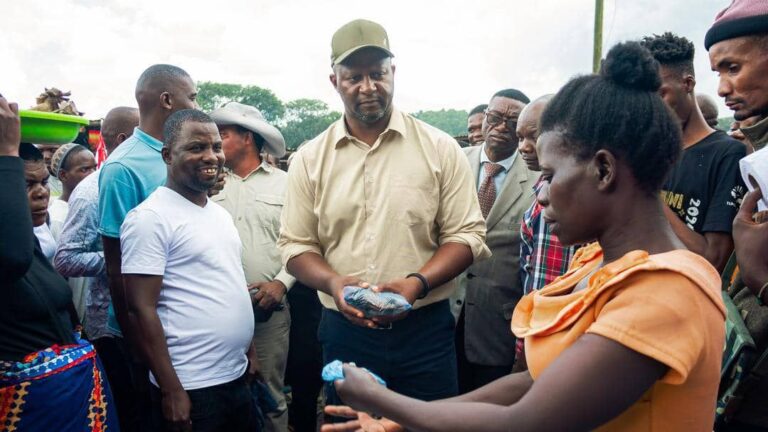By Jones Gadama
Malawi’s economic landscape is looking up, with experts predicting a strong performance in the second quarter of 2025.
According to Bertha Chikadza, President of the Economic Association of Malawi (ECAMA), the opening of tobacco auction floors and ongoing crop harvests are expected to boost foreign exchange inflows and ease food inflation pressures.
Speaking to MBC Digital, Chikadza expressed hope that these developments will have a positive impact on the country’s economy.
Her sentiments were echoed by Leslie Fatch, President of the Financial Market Dealers Association, who believes that generating more foreign exchange at the auction will spur business activities.
The tobacco industry is a significant contributor to Malawi’s economy, and the opening of the Kanengo, Chinkhoma, and Limbe auction floors is expected to increase foreign exchange earnings.

The auction floors will provide a platform for farmers to sell their tobacco, attracting buyers from around the world and injecting much-needed foreign currency into the economy.
The key drivers of economic growth in Malawi include the tobacco auction floors, crop harvests, and foreign exchange generation.
The opening of the tobacco auction floors is expected to boost foreign exchange inflows and increase government revenue.
Ongoing crop harvests will help ease food inflation pressures and increase food availability, reducing reliance on imports. Increased foreign exchange earnings will help stabilize the local currency and reduce pressure on the balance of payments.
Chikadza noted that the economic outlook for the second quarter of 2025 is promising, with the potential for increased economic activity and growth.
She, however, emphasized the need for continued policy support to ensure that the economy remains on a stable path.
Fatch shared similar views, stating that the increased generation of foreign exchange at the auction will have a positive impact on business activities. He added that this will help to stimulate economic growth and increase investor confidence in the country.
The Reserve Bank of Malawi regularly publishes economic reviews, providing insights into the country’s economic performance.
According to the Reserve Bank of Malawi’s economic reviews, the country’s economy is showing signs of resilience, with some sectors performing better than expected.
The World Bank’s Malawi Economic Monitor also provides an in-depth analysis of the country’s economic performance and prospects. The report highlights the challenges facing the economy, including high inflation and limited foreign exchange earnings.
However, the report also notes that Malawi’s economy has the potential for growth, driven by various sectors, including agriculture and mining.
Malawi’s economy is poised for growth, driven by the opening of tobacco auction floors and ongoing crop harvests.
Experts are optimistic about the country’s economic performance in the second quarter of 2025, citing increased foreign exchange earnings and eased food inflation pressures.
While challenges remain, the country’s economic outlook is promising, with potential for increased economic activity and growth.
Continued policy support will be crucial in ensuring that the economy remains on a stable path and that the benefits of growth are shared by all.
To sustain economic growth and development, Malawi should diversify the economy, reduce reliance on tobacco and other traditional exports by promoting non-traditional exports, improve infrastructure, invest in infrastructure development to support economic growth and increase competitiveness, and enhance policy support to ensure that the economy remains on a stable path and that growth is inclusive.
By implementing these strategies, Malawi can ensure that its economy remains on a stable path and that growth is sustained over the long term.
The country’s economic future looks bright, with potential for increased economic activity and growth.
The optimism surrounding Malawi’s economic performance is well-founded, given the expected increase in foreign exchange earnings and the potential for growth in various sectors.
As the country continues to navigate the complexities of economic development, it is essential to maintain a stable economic environment and promote inclusive growth.
With the right policies and strategies in place, Malawi can achieve sustained economic growth and development, improving the lives of its citizens and reducing poverty.
The opening of tobacco auction floors and ongoing crop harvests are just the beginning, and the country’s economic future looks promising.
Malawi’s economy is poised for growth, driven by the opening of tobacco auction floors and ongoing crop harvests.
Experts are optimistic about the country’s economic performance in the second quarter of 2025, and with the right policies and strategies in place, the country can achieve sustained economic growth and development.







